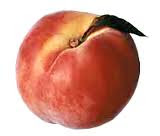Jeff probably thinks he is mocking me by repeating words from my post in his comment (yes, I read it, but that says nothing about the inclination of the general readership to do the same; nor does it show that anyone derives a benefit from any such viewings). I decline to take it that way. If my example helps him expand his vocabulary, we have accomplished something positive, have we not? Next we can work on stimulating his imagination.
With that out of the way, here is today's bit. The next stanza we see was contributed by Mr. Grund and his Facebook friends, and I incorporated their suggestions for changes to the subsequent stanza (I cannot believe I did not think of 'paradigm'). Also, this time we have annotations, which I am pasting below in Mr. Grund's words. I removed the superscript numerals that in the printed (MS Word) version link the notes to the body text because they produced extra spaces between the lines.
What are these minds thus modeled by these molds?
They’re parts of organisms that have grown
from blueprints. Who wrote them? Who drew the folds
through which words pass as we play Telephone?
Some scientists are now defining genes
as patterns that maintain themselves through time
by changing raw materials to machines
that pass them on—a useful paradigm.
But genes are not the leaders at that game;
that title goes to certain kinds of thought
that use the human mind to stay the same.
Our genes create the “is” that makes the “ought”.
I’ll leave it up to greater minds than mine
to tell us why our genes cooperate.
We’d have to see the whole ancestral line.
That’s more than I can handle at this date.
So, what I’d like to do today instead
is follow one of these things for a while
and see the possibilities ahead.
We’ll skip the past and turn another dial.
© 2010 Louis A. Merrimac
Kinds of thought: This is the concept of a ‘meme’ as proposed by Richard Dawkins in The Selfish Gene
Makes the "ought": The author is not arguing that moral principles can be objectively derived. He is simply saying that morality, although entirely subjective, generally serves to promote reproductive behavior, and is therefore adaptive. Other writers have grasped this concept, but as far as I know, none have carried it as far as this one.

Thank you, Mr. Merrimac, for the vocabulary lesson. Now I know the difference between a stuffy old blowhard and a pompous windbag. And I didn't even have to use a thesaurus.
ReplyDeleteWhat's the difference?
ReplyDeleteOne has better initials.
ReplyDelete